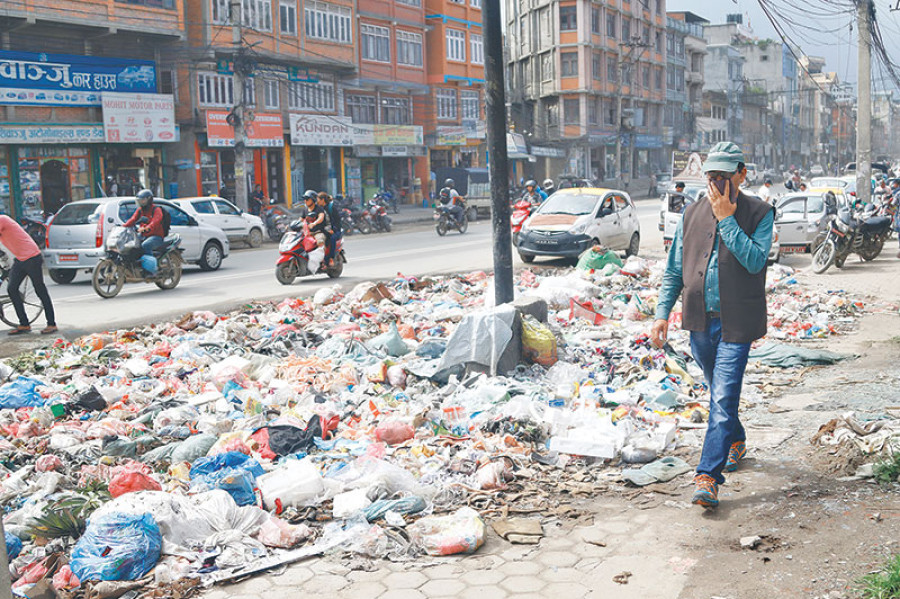Valley
Stench troubles Valley folk as garbage litters streets
Shrijana Kandel, 37, of Kalimati closes all the windows of her apartment to keep out obnoxious smell emanating from a garbage heap nearby. Waste has not been collected from the streets of Kathmandu for nearly three weeks.
Anup Ojha
Shrijana Kandel, 37, of Kalimati closes all the windows of her apartment to keep out obnoxious smell emanating from a garbage heap nearby. Waste has not been collected from the streets of Kathmandu for nearly three weeks.
“Sometimes it feels suffocating. We can’t breathe in fresh air at home and it’s a nightmare when we go out. We are compelled to shut all the windows at home. Wearing mask is of no help in fighting stench either,” said Kandel, a mother of two. A migraine patient, doctors have advised her to keep away from stink.
She said municipal staffers have not come to her area to pick garbage for a month. According to the Kathmandu Metropolitan City (KMC), the problem will not be resolved fully soon as the dumping site at Sisdole in Nuwakot district has run out of space. Besides, lorries that ferry solid waste are stuck on the road muddied by rains in the past two weeks.
Sunil Parjapati of Tripureshwor faces a similar problem. “Garbage is littered everywhere. They have stopped collecting trash for a month even as I pay the collector Rs350 every month,” he said.
A common sight on the streets of Kathmandu these days is people walking past garbage heaps covering their nose. While organic waste littered on the streets decays, contaminated floodwaters fill potholes on the road.“It’s rainy season. If the waste remains on the streets for long, it can contaminate piped water supplied to local residents. This might cause another disaster,” said Dr Anup Bastola, chief consultant for tropical medicine at the Shukraraj Tropical and Infectious Disease Hospital, Teku. “If the situation persists, an epidemic can break out in the capital city,” he warned.
If the problem is not sorted soon, people could face water- and food-borne diseases such as dysentery, typhoid fever, nausea and cough. Dr Bastola advises people to wash hands with soap frequently, drink boiled water and avoid stale food.
The KMC and the Lalitpur Metropolitan City have instructed people to manage garbage at home until a way out is found. Kathmandu Valley generates around 500 tonnes of solid waste each day.
Gyanendra Karki, spokesperson for the KMC, said the metropolis cannot solve the garbage problem alone. There is an immediate need to build a new dumping site at Banchare Danda, he said. “The metropolis needs the government’s help to build the infrastructure since we can’t compensate locals for the 1,792 ropanis of land at Banchare Danda.”
He accused the Solid Waste Management Technical Support Centre of not readying the infrastructure at Banchare Danda, two kilometres west of Sisdole. Bishwa Mani Gyawali, executive director of the SWMTSC said, they failed to the work in the lack of resources.




 9.6°C Kathmandu
9.6°C Kathmandu.jpg)














